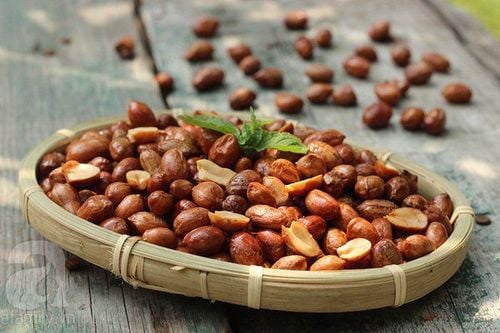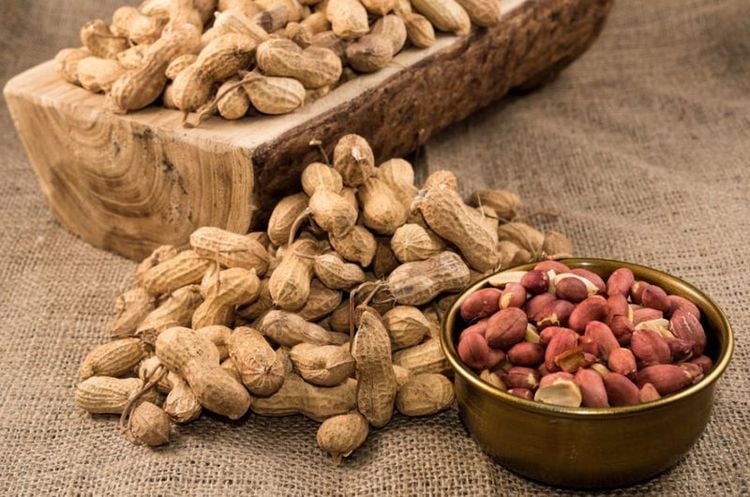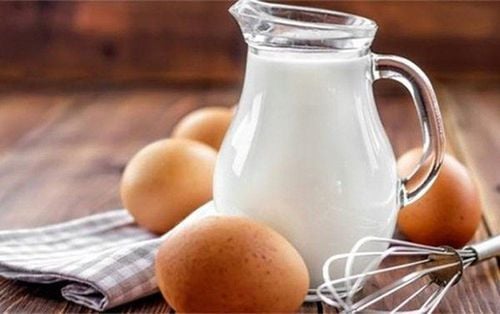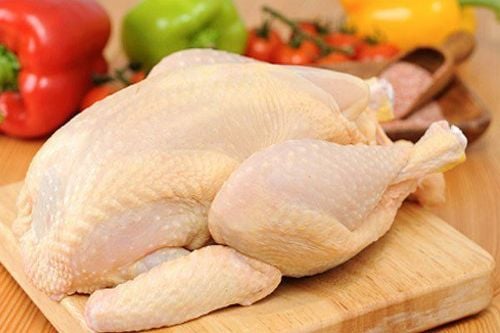Peanuts belong to the group of nuts that have a high nutritional and calorie content. They are commonly chosen by many people as a snack or as part of daily meals. So, does eating peanuts lead to weight gain? The following article will provide information and further analysis on this issue.
1. Does eating peanuts lead to weight gain?
To determine whether peanuts cause weight gain, we first need to look at the nutritional composition of peanuts:
In 100 grams of peanuts, there are approximately 572 calories, 27 grams of protein, 8.5 grams of fiber, 61 grams of calcium, 432 mg of phosphorus, 680 mg of potassium, 174 mg of magnesium, 3 mg of zinc, 8.1 mg of vitamin E, 0.14 mg of vitamin B2, and 21.3 mg of vitamin B3.
Peanuts contain a high calorie content along with a significant amount of fat, so consuming them in large quantities can lead to weight gain. This is because it can be difficult to control the amount you consume when eating peanuts. As a result, many people end up eating more peanuts than necessary, especially caramel peanuts or salted roasted peanuts.
Whether peanuts lead to weight gain depends on how you consume them and your level of physical exercise. Lack of physical activity can cause fat accumulation and lead to obesity. However, if you eat peanuts in moderation and combine them with regular exercise, there's no need to worry about your weight.
Therefore, peanuts are considered a food with many health benefits. In fact, studies have shown that peanuts can help with weight loss if consumed appropriately. Due to their high fiber content, peanuts can help prevent the full absorption of calories.
Although peanuts are high in fat and calories, they also contain protein, which helps reduce hunger and can make you feel full for longer.
Many studies have also shown that snacking on a moderate amount of peanuts can help control hunger effectively without leading to weight gain.

2. How much peanuts should be consumed to avoid weight gain?
Determining the exact amount of food to consume in order to avoid gaining weight from a particular diet is difficult. This depends on an individual's lifestyle, metabolism, and hormonal balance.
For peanuts used in daily meals, a reasonable amount is about 30 grams, which corresponds to one-quarter of the daily recommended intake for a healthy adult. This can help with better weight management. Experts also suggest consuming one or two handfuls of natural peanuts per day, which is approximately 280 calories. However, it's best to avoid salted peanuts or those with added preservatives and flavorings.

3. Some benefits of peanuts for the health of users.
Peanuts not only help with effective weight loss but also serve as a healthy snack. They also offer several health benefits for users, including:
- Peanuts have a high energy-producing nutritional content, especially protein and the amino acid arginine, which makes peanuts an important source of protein for the body. These components contribute to the body's growth and development.
- The nutritional components in peanuts also help care for and protect the nervous system and immune system.
- The amino acid tryptophan in peanuts helps improve sleep quality, enhance mood, and contribute to the production of serotonin, the "happiness hormone."
- The oil content in peanuts can help lubricate the digestive system and intestines.
- Peanuts are especially beneficial for the cardiovascular system as they provide many essential amino acids, including linoleic acid, which helps keep the heart functioning smoothly.
Please follow the website: Vinmec.com regularly to stay updated with more useful information.
To arrange an appointment, please call the HOTLINE or make your reservation directly HERE. You may also download the MyVinmec app to schedule appointments faster and manage your reservations more conveniently.













